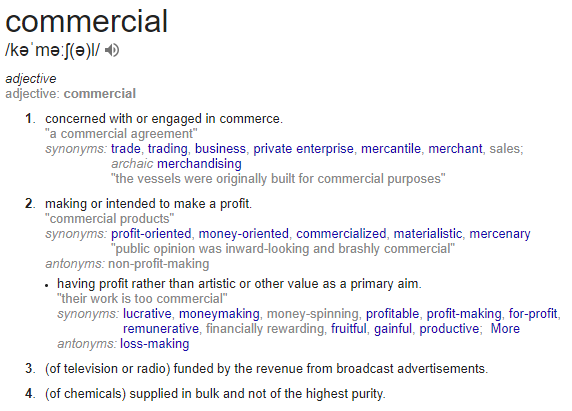Hi Richard,
You’ve raised some valid points, thanks for taking the time to write it up for discussion.
It is likely that hackspaces will use the content for commercial purposes, so would it not be better to drop the “Non Commercial” condition?
That’s a matter of interpretation. There’s no UK definition of non commercial so my interpretation differs to yours. It may be a case of the intent behind this being unclear.
The content should be freely available for all hackspaces to use regardless of locality. If our documentation of X is good enough then it should be useful globally not just in the UK. Obviously that’s limited when it comes to the UK specific stuff but you get the idea.
It’s worth just posting the UKHSF mission statement:
The Hackspace Foundation exists to support and further the goals of the Hackspace movement, mainly within the United Kingdom, Ireland and Crown Dependencies. We are a not-for-profit cooperative organisation that links the Hackspaces together, intending to allow geographically distributed Hackspace groups to share knowledge, resources, and collectively plan for the future.
We want to provide resources to support the community. What we were trying to avoid is someone taking part or all of our work and publishing it for financial gain. It would be nice to think that we could to that ourselves in the future, but it will always remain free to use for hackspaces.
Also, I think you are asking for us to assign to the foundation title to the rights for the content, not simply to give you license. I would not be willing to do that, and don’t think such an assignment clause would work in U.K. Law.
There’s some discussion regarding the merits this may have or the practicality of this happening so we’ve agreed to drop this. Thanks for questioning this, we do listen to what people say  Alongside the NC aspects, we discussed having the option to commercially licence it should this ever come up. Assigning the copyright would make this much simpler however this would again in no way restrict use of the material for hackspaces.
Alongside the NC aspects, we discussed having the option to commercially licence it should this ever come up. Assigning the copyright would make this much simpler however this would again in no way restrict use of the material for hackspaces.
Most of the content will already have been released under existing licenses anyway
I don’t understand why the foundation needs to own the content to protect it, or even why the content needs protection, surely our objective should be to share widely under the most permissive license possible.
Content is being written specifically for the Hackspace Owners Manual. Whilst not all of the available resources, it’s certainly hoped that this will be a hefty percentage.
As @stantos said, people have or will put a great deal of time and effort into generating content and don’t want a commercial organisation making money based on that effort.
We’re going to drop the requirement to transfer ownership of copyright and I’ll put that change out before the end of the day. One of the primary considerations here is that it’s being seen as a barrier to contribution and as such needs to go away.
It’s clear from this discussion that the licensing issue isn’t resolved so that conversation needs to happen again with a clear view of both sides of the discussion. I’ve tried to lay out the reasons behind the original choice of licence above, if you have specific reasons that you think the licence should be different and indeed what licence we should use then please add them here to the discussion.
My own views are that the intent behind the choice of NC is very much about ensuring the work isn’t used by someone else to make a few quid at the expense of the community. I’d love to say that in five years we’ll have enough content to have people asking about commercially licensing it for inclusion elsewhere as that would put money in the UKHSF coffers enabling us to do more to support UK spaces via grants, loans and a host of other things we’d like to be doing. How realistic is that? Who knows! But whatever we do it will be with the aim of assisting new and existing spaces the best we can.
As with all things, we’re doing the best that we can with our free time to provide this and other things. If that’s at odds with the communities needs and desires, then we should absolutely be having conversations on how and why we should change. It could be we’re all on the same page and that we’ve conveyed our intent badly.
It’s very easy to think we’ve built consensus when in fact we have not. Ensuring everybody is on board and informed is really hard - it took me nearly two months to get the meeting minutes from Oldham agreed to publish and that was a small number of people.
So. Licencing. What should we use and why? Should we be dropping the non-commercial? Do you see the non-commercial in the same way that the intent uses it or differently? How could we change it to try and achieve our intended outcome?
Answers on a postcard or in a long thread right here……
← insert epic thread of licencing discussion here→
